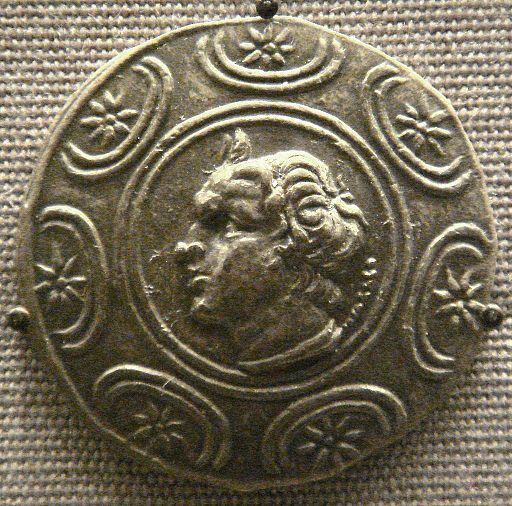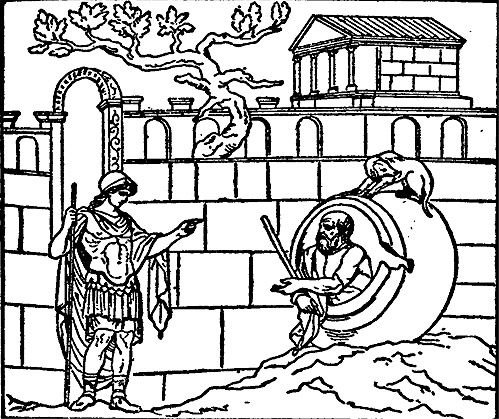Wanting Little or Wanting Nothing
.jpg)
Self sufficiency (αὐτάρκεια) is sometimes attributed to the Cynics, but with little reason. The word is rarely used in writings relating to them. In Bion's treatise περὶ αὐτάρκειασ (Stobaeus, Flor. 1, 5, 67), he takes Socrates as his exemplar of this quality and mentions the Socratic virtues- temperance, justice and courage. Von Fritz says, "Bion never was really a Cynic" (Quellen-untersauchungen p. 45). The idea of wanting little or wanting nothing is connected with them. "Diogenes used to say that it was the privilege of the gods to need nothing and of god-like men to want but little" (D. L. 6, 104). "Train yourselves to want little, for this is nearest to God, the opposite is furthest" (11th Letter of Crates). "This man (Diogenes) used to maintain how much he surpassed the Persian king in his manner of life and fortune; for he himself was in want of nothing, while the other never had enough " (Cicero, Tusc. Disp. 5, 32). This idea seems to have been borrowed from Xenophon, who attributes it to Socrates (Mem. Soc. 1, 6, 10). It had little applicability to men who claimed the privilege of having their physical wants supplied by others, as their critics did not fail to note. "Though they (Cynics) say that they want nothing, yet… they need a currier for their wallet, a weaver for their mantle, a woodcutter for their staff and the rich (from whom to beg) and a cook also for their gluttony" (Tatian, Address to the Greeks 25). Lucian says; "What is so monstrous is that every man of them says he has no needs, proclaims that wisdom is the only wealth, and directly afterward comes begging and makes a fuss if he is refused" (The Fisher).
Image: Coin depicting Antigonus II Gonatas of Macendonia, who was born around 319 BC. Bion met this king. Photo By Uploadalt (photographed at British Museum) CC BY-SA 3.0, via Wikimedia Commons
Other Posts in the Diogenes of Sinope series
The Cynics Referred to the Habits of Animals
Slump towards Animalism
Attitude of the Cynics Towards Pleasure
Happiness Did Not Exclude Pleasure
Diogenes as Hedonist
Short Road to Happiness or Short Cut to Virtue?
Despising Pleasure is Pleasurable
What is Virtue for a Cynic: Cats for Thievery
What is Virtue for a Cynic: Promiscuous Sexual Intercourse
The Cynic Sought Freedom
Labor Did Not Enter into the Cynic Scheme of Life
The Easy Life of the Cynic
The Cynic was Fond of Comparing Himself with Kings and Emperors
The Object of the Cynic was Happiness
I Am a Citizen of the World
Freedom of Speech is the Most Beautiful Thing in the World
An Excess of Infamy
I Speak Plainly as an Interpreter of Apathy
A Man Should Live Contented with Present Things
Contempt of the Opinions of Others
Extreme Public Indecencies
For a young man not yet; for an old man never at all
Philosophers Who are No Philosophers
The City Swarms with These Vermin
Living From Day to Day
